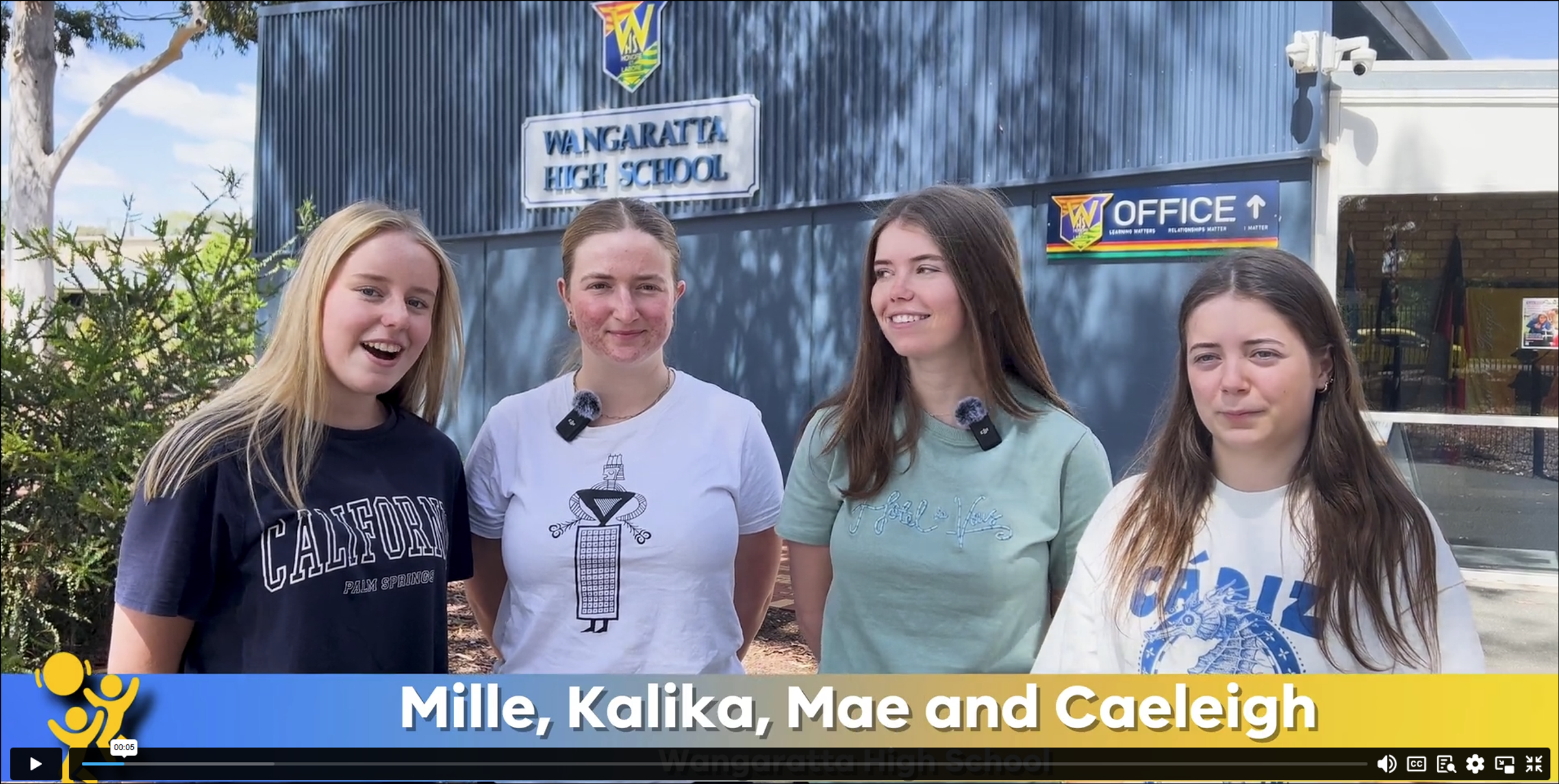Have a great summer!

As we approach the end of another school year and look ahead to a well-deserved Christmas and summer break, I want to extend my sincere gratitude to everyone who has contributed to making this year a success. To our dedicated staff, thank you for your unwavering commitment, professionalism, and care. Your passion for teaching and guidance has helped our students grow both academically and personally. To our students, congratulations on your achievements, resilience, and willingness to embrace new challenges—you have much to be proud of as you finish the year. And to our broader community, your support and engagement have fostered a nurturing environment that inspires each young person to dream big.
As we celebrate this season of rest and renewal, I also encourage you to reflect on the exciting journey ahead, particularly for those entering Year 7 in 2025 and aiming for graduation in 2030. As outlined in my recent message to the parents and carers of the Class of 2030, this upcoming stage offers immense opportunities for growth, learning, and connection. Together, by maintaining high aspirations, embracing the positive aspects of adolescence, and forging strong partnerships between home and school, we can ensure our students continue to thrive in the years to come.
Wishing you a joyful Christmas, a relaxing summer break, and a bright start to the New Year. I look forward to seeing you at our annual Presentation Night. We have a special guest and some exciting news to share, along with a great showcase and celebration of student achievement and accomplishment. Wednesday 18th Decemeber, 5.40pm for a 6pm commencement at the Wangaratta PAC in town.
Dave Armstrong
Executive Principal
Message to the class of 2030
In my termly Principal's message in the Wangaratta Chronicle I shared a "letter to the parents and carers of the Class of 2030". This will be the year that our new 2025 Year 7's will finish secondary school. I believe it is relevant to all parents and carers:
Dear Parents and Carers of the 2025 Year 7 Class,
In 2025, Australian secondary schools will welcome the Class of 2030! We are excited about this new chapter and wish to share some insights and advice as you embark on this journey with your child ahead of the last summer break before high school and their graduation from Primary School.
1. Embrace Adolescence as a Positive Time
Adolescence is a period of tremendous growth and opportunity for young people, and it can also be a rewarding time for parents and carers. Unfortunately, there is a pervasive narrative suggesting that these years are fraught with difficulty, especially for parents. I urge you to challenge that view—it’s key to a great life stage.
While this stage will bring significant changes, it can also bring much joy and love if approached with the right mindset. Remember, nothing worthwhile comes easily. It’s also worth acknowledging that despite the challenges in the world today, this is a time of unprecedented opportunity for young people to grow, connect, and innovate . You play a critical role in fostering their resilience and sense of purpose during this unique period.
2. Keep Your Dreams and Hopes for Your Child in Focus
As your child begins high school, take a moment to reflect on the dreams and hopes you hold for them. Research shows that parental aspirations significantly influence a child’s motivation and success. High aspirations, when realistic and supportive, can inspire children to reach their potential.
Unrealistic or excessive expectations can lead to stress and anxiety, making it harder for them to thrive—but don’t let that stop you from holding high expectations grounded in love and optimism. We are living in a time where your child has access to unprecedented opportunities to explore their talents, build skills, and dream big – even if others contend otherwise. .
3. Educate Yourself and Get Prepared
As your child starts high school, equipping yourself with knowledge can be one of your greatest assets. I highly recommend Steve Biddulph’s Raising Boys and Raising Girls. I also recommend you have a look at our Above the Line model whs.vic.edu.au/abovetheline when reflecting on mindset, ownership and accountability.
The Australian eSafety Commissioner’s website is an outstanding resource. It provides practical advice on managing apps, phones, and technology in the home. The guidance on screen time and device use is particularly helpful (hint: devices should only ever be used in communal areas, never in bedrooms, and phones should always stay out of bedrooms at night).
4. Take Charge of Social Media and Mobile Phones
Social media and mobile phone use are one of the most critical areas impacting adolescents' wellbeing and success. I have written and spoken about this extensively in the media and to our parents. Left unchecked, it can make adolescence far harder and more painful than it needs to be—for both young people and their families. While changes are coming in terms of legislation to better regulate minors’ access to social media, do not wait for these changes to take effect. Take charge and ownership of this issue now.
Protect your child by setting clear, firm boundaries around technology use. Delay access to social media and smartphones for as long as possible (16 is a good number and will ultimately be enforced under new laws) to help them build healthier habits and stronger interpersonal skills. If your child is already using social media, consider revisiting and restricting their access—it’s not too late to revoke.
It’s important to understand that smartphones are absolutely not essential, especially during early adolescence. If you need to contact your child, a simple ‘dumb phone’ is more than adequate. These devices can allow calls and texts without exposing your child to the challenges and risks of social media, excessive screen time, or unfiltered internet access.
The evidence is overwhelming: excessive screen time, online pressures, and exposure to harmful content can significantly impact mental health, sleep, academic performance, and social development. By addressing this proactively, you will create a safer, more supportive environment that allows your child to thrive during these formative years.
This is one area where your action—or inaction—can have profound and lasting effects. Take the lead, set boundaries, and guide your child toward a balanced and healthy relationship with technology.
5. Partner with Your School
Your child’s school is an essential partner in their growth and development. Actively engaging with the school helps to build strong connections and demonstrates to your child that their education is a shared priority. It is critical to attend parent-teacher interviews, concerts, and other school events. Support your child’s full participation in camps, excursions, and extracurricular activities. Encourage them to step outside their comfort zone—whether it’s learning a musical instrument, trying a new sport, or joining a band or club.
At Wangaratta High School, key contacts are their classroom teacher (noting that they will have 10 teachers compared to 1 in primary school!) and their Year Level Leader (there are 2 of those to prioritise their learning and wellbeing). The names and photos of these staff are on our website.
I invite you to find out more about our comprehensive offering, our unyielding focus on aspiration and caring, and our rich teaching and learning framework: www.whs.vic.edu.au.
Wishing the Class of 2030 all the best! Have a great summer last summer before High School
Dave ArmstrongExecutive Principal
2nd Part of the video story of our adventure playground
Our new adventure playground is now very much part of our campus, and has been in particular demand as we host our new 2025 Year 7 cohort. Our funding partner, Active Schools, have created a part 2 of the video series explaining the process and outcome that led to the project and funding. Enjoy
(Part 1 of the video series is on the home page of our website)
